 Petzlover
Petzlover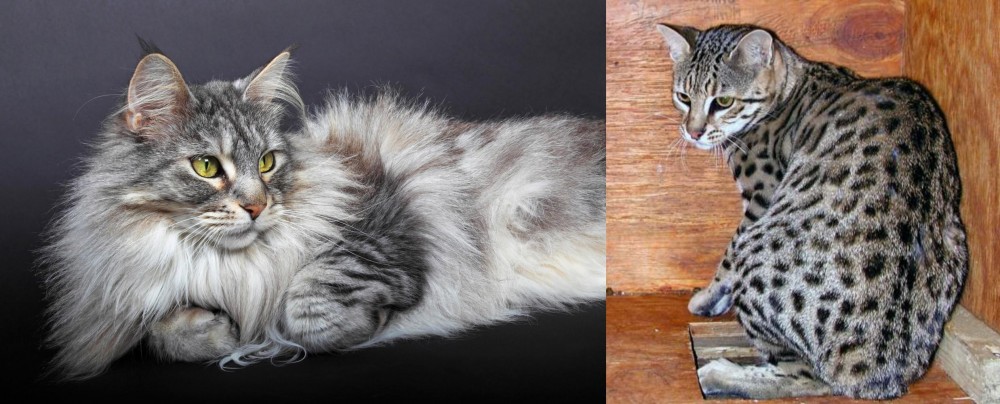 Both Domestic Longhaired Cat and Safari are originated from United States. Both Domestic Longhaired Cat and Safari are having almost same weight. Both Domestic Longhaired Cat and Safari has same life span. Both Domestic Longhaired Cat and Safari has same litter size. Domestic Longhaired Cat requires Moderate Maintenance. But Safari requires Low Maintenance
Both Domestic Longhaired Cat and Safari are originated from United States. Both Domestic Longhaired Cat and Safari are having almost same weight. Both Domestic Longhaired Cat and Safari has same life span. Both Domestic Longhaired Cat and Safari has same litter size. Domestic Longhaired Cat requires Moderate Maintenance. But Safari requires Low Maintenance
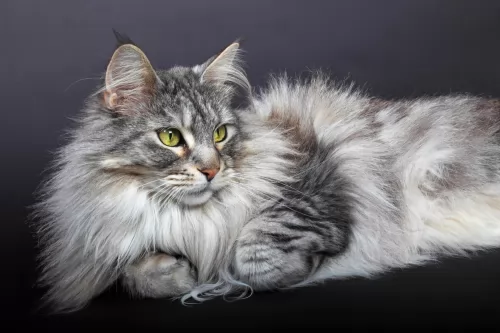 The Domestic Longhaired cat came about because of various attempts by breeders to bring in certain Persian cat varieties in the American Shorthairs.
The Domestic Longhaired cat came about because of various attempts by breeders to bring in certain Persian cat varieties in the American Shorthairs.
The cat comes from champion bloodlines but one of the most remarkable traits of the Domestic Longhair cat is that they are just typical cats with long hair. In other words, Domestic Longhairs are a product of various cat breedings and it is thought they arrived in the USA with the early settlers.
They shouldn’t be confused with the purebred American Longhair cat. The ancestry of the Domestic Longhair cat is unknown but for people who own them, they are a longhaired cat that becomes special to their owners. The cat isn’t recognized by the larger cat organizations.
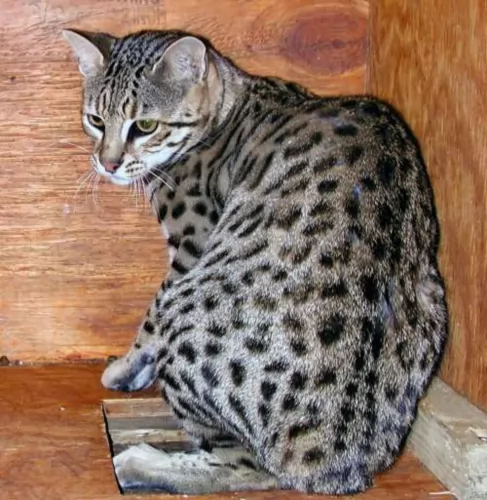 The Safari Cat, hailing from the USA, is one of the rarest breeds of cats. There are only about 70 of these cats registered at the International Cat Association.
The Safari Cat, hailing from the USA, is one of the rarest breeds of cats. There are only about 70 of these cats registered at the International Cat Association.
The Safari cat is a mix of a moggy and Geoffroy's cat. At first, the cat was used for research purposes by Washington State University but then cat breeders took over the development of the breed.
The name ‘Safari’ was chosen because of its wild look.
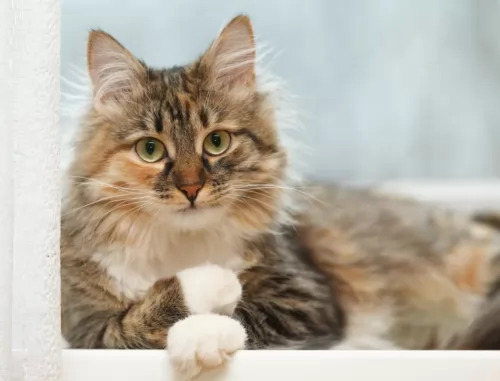 These Domestic long-haired cats are hugely popular in the United States. They can be of any color and the coat can have different patterns too, including bi-color, tortoiseshell and tabby.
These Domestic long-haired cats are hugely popular in the United States. They can be of any color and the coat can have different patterns too, including bi-color, tortoiseshell and tabby.
With his muscled, athletic body he can weigh between 3 and 6kg. He can have a variety of eye colors, ear sizes, and shapes Essentially, their size and shape is influenced by the breed that dominates.
These are just your regular, balanced cats and they make splendid pets for first-time cat owners, single pet owners, those with kids in the home and seniors. You can’t really tell how their personality will be and some will be more quiet than others and some more loving than others too. A lot depends on how you raise- and socialize your cat.
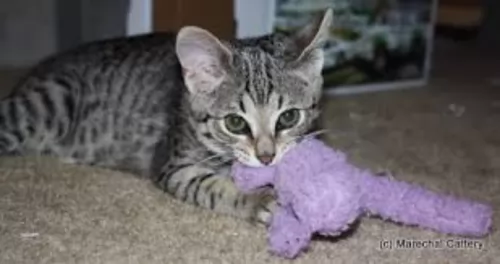 The hybrid Safari cat is a medium to large-sized cat that at first weighed in the region of 15kg, but the cat now weighs roughly 11kg.
The hybrid Safari cat is a medium to large-sized cat that at first weighed in the region of 15kg, but the cat now weighs roughly 11kg.
Its body is much like that of the wild parent, the Geoffroy – muscular and compact. The ears aren’t particularly large and are smallish, rounded ears with a fairly broad head.
It has a typical wild cat look and is a spotted or rosetted cat breed. Below the spots, the coat is a silvery grey shade.
The coat which is short actually comes in a variety of colors that come from both cat breeds. The eyes of this cat are either yellow or green. The Safari cat certainly has a wild cat appearance, because of the cross-breeding. This is a rare cat and because of this, there is no breed standard for it.
They can live to be between 17 and 20 years of age.
Even though one of the parent breeds is a wild cat, the Safari cat is described as an easy-going cat that can make a good pet.
The cat is very intelligent and playful and will enjoy swimming and climbing. It is for this purpose that he needs to have quite a large outside enclosure with a pool of sorts so that he can paddle.
There isn’t much information on their interaction with children and other pets in the home. While they are quite likely to make good pets where there are children, there would have to be supervision where there are small children. During play, these cats can bit. It would be extremely important to teach children to respect any animal and to be gentle and kind to them.
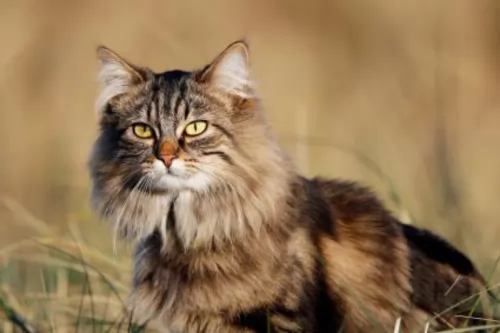 Domestic Longhairs are such wonderful cats and slot into a host of different lifestyles.
Domestic Longhairs are such wonderful cats and slot into a host of different lifestyles.
They are generally content cats with the different lifestyles they find themselves in. Some are smart, some playful, some quiet and some naughty, some are very vocal and some are content to be lap cats.
They're all different but they all have needs and concerns – to be part of a loving human family and to be treated with love, care and respect for the companionship they offer.
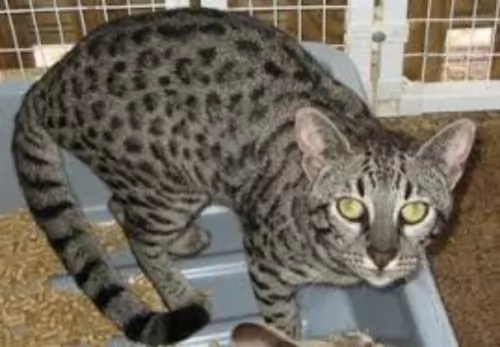 As a hybrid cat, your Safari is interesting alright, but unfortunately, you can’t ever be 100% sure of a hybrid cat. It needs careful consideration before you bring one into your home.
As a hybrid cat, your Safari is interesting alright, but unfortunately, you can’t ever be 100% sure of a hybrid cat. It needs careful consideration before you bring one into your home.
Apart from coming into the home from time to time, hybrid cats need an outside enclosure too that is securely fenced and gated and with a roof.
You made a decision to buy a cat with a wild side. It may live up to all your expectations but it may not either.
When you do research you find that the biggest number of behavioral complaints from owners of hybrid cats are about aggression issues and the refusal to use a litter box when indoors.
There is still a raging debate going on as to whether hybrids make suitable pets, but when you bring any animal into your home, as a responsible adult it is your job to provide well for it to ensure its happiness.
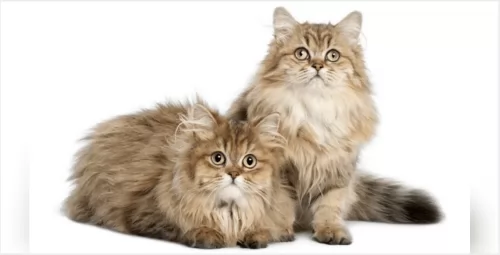 It is their mixed breeding that ensures that the Domestic Longhaired cat doesn’t have any health issues. Like any cat, things such as arthritis, cancer, diabetes and kidney disease can plague your cat.
It is their mixed breeding that ensures that the Domestic Longhaired cat doesn’t have any health issues. Like any cat, things such as arthritis, cancer, diabetes and kidney disease can plague your cat.
A good diet, exercise, lots of love and care can all help to ensure your kitty kat doesn’t succumb to anything that your vet can’t handle.
As soon as your cat shows any sign of illness, get him to the vet. If you look after your cat well, he can avoid a lot of vet visits and can reach 15 to 20 years of age.
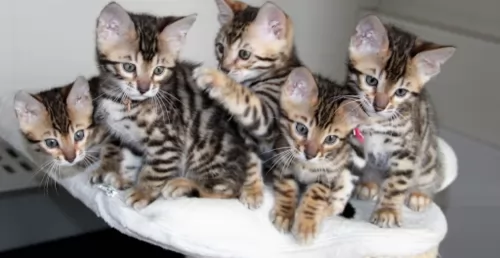 The Safari cat isn’t a particularly well-known breed so there isn’t much information on their health. They can suffer from the same illnesses as non-hybrid domestic cats.
The Safari cat isn’t a particularly well-known breed so there isn’t much information on their health. They can suffer from the same illnesses as non-hybrid domestic cats.
Certain hybrid breeds, such as the Safari, can sometimes have issues with reproduction as some cats are infertile. Domestic cats and wild cats have a different number of chromosomes and this results in reproductive problems, and stillbirths are quite common.
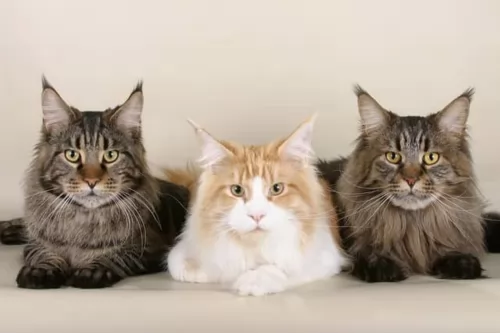 The hair of the Domestic Longhair will need to be tackled and you will need a firm brush to gently brush your cat once a week. This ensures the hair remains silky and tangle-free.
The hair of the Domestic Longhair will need to be tackled and you will need a firm brush to gently brush your cat once a week. This ensures the hair remains silky and tangle-free.
Remember, there are always professional cat groomers who specialize in grooming cats and ensuring their teeth, inside of ears, their nails and their fur is in tip-top condition.
Keeping your cat healthy is always going to require a trip to the vet. Your Domestic Longhair is going to require certain vaccines and deworming to ensure he remains free of deadly cat diseases. Also, if your cat is acting in a lethargic, ‘sick’ way, it could well be a sign that he is ill and a trip to the vet will be imperative as the condition could become worse.
To ensure your cat has the best chance at health, make sure you feed him well. Gut health is absolutely imperative and feeding your cat too many carbs will give him plenty of digestive problems.
A cat is a carnivore – a meat eater – and therefore his food needs to be meat. A kitten will require 4 small meals a day and an adult cat – over the age of 1 year – will require 2 meals a day. Any questions you have about feeding your cat can be answered by your local veterinarian.
Speak to your vet about spaying or neutering your Domestic Longhaired Cat as this will prevent unwanted kittens, particularly if your cat is allowed outdoors and wanders off.
Also, neutering and spaying have a host of health benefits for your cat and it also improves their personality.
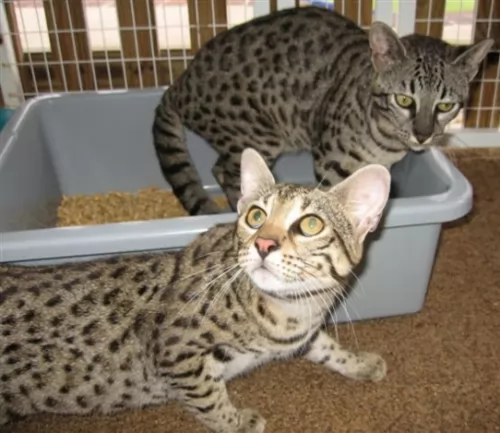 It is recommended that you brush this cat each week. He isn’t a big shedder but the brushing once a week keeps the fur in good condition, removing loose hairs and dust.
It is recommended that you brush this cat each week. He isn’t a big shedder but the brushing once a week keeps the fur in good condition, removing loose hairs and dust.
A high protein diet is imperative. Cats are carnivores and a meat diet is imperative. You can speak to your vet or a cat expert about feeding your Safari cat. Certainly, they need to be fed high-quality cat food. These foods are available in wet and dry form.
He will definitely need some raw meat. Make sure you understand the ingredients in some low- quality cat foods as corn for cats can be a problem for them, hard to digest and it could cause intestinal problems.